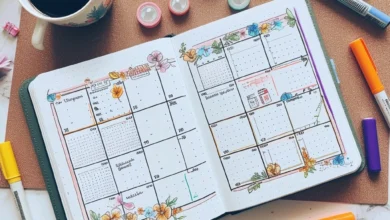
When talking about personal development, it’s more important than ever to prioritize self-care and personal growth goals. By taking time for ourselves, we can improve our mental and physical health, enhance our relationships, and achieve our goals.
Understanding Self-Care
Self-care refers to the actions and practices that individuals engage in to maintain and improve their physical, mental, and emotional well-being. It involves intentionally taking steps to care for oneself, ensuring that personal needs are met to function effectively in daily life. Self-care and personal growth goals can include anything from healthy habits like exercising and eating nutritious foods, to stress-relief practices such as meditation, relaxation, or setting personal boundaries. At its core, self-care is about prioritizing one’s health and happiness to prevent burnout and maintain balance in life. It’s a proactive approach to overall wellness.
Key Components of Self-Care
- Physical Self-Care: Activities that improve physical health, such as regular exercise, a balanced diet, adequate sleep, and regular medical check-ups.
- Emotional Self-Care: Managing emotions by recognizing and expressing feelings, setting boundaries, practicing self-compassion, and engaging in activities that promote emotional well-being.
- Mental/Intellectual Self-Care: Stimulating the mind through reading, learning new skills, solving puzzles, and engaging in creative activities to foster cognitive well-being.
- Social Self-Care: Building and maintaining healthy relationships, seeking support from friends, family, or community, and setting aside time for social interactions.
- Spiritual Self-Care: Activities that nourish the soul, provide a sense of purpose, and align with personal beliefs. This can include meditation, prayer, reflection, or spending time in nature.
- Professional Self-Care: Maintaining a healthy work-life balance, setting boundaries at work, and taking time for professional development and stress management.
- Environmental Self-Care: Creating a healthy and organized living and working space that promotes comfort, calm, and productivity.
How to create Personal Growth goals?
Personal growth goals are included in a roadmap that helps you set goals and take steps to achieve them. It can be a valuable tool for self-improvement and personal fulfillment. Creating a personal growth plan involves setting clear goals, identifying areas for improvement, and developing actionable steps to achieve those goals.
Here’s a step-by-step guide to help you create your own personal growth goals:
1. Self-Reflection
- Assess Your Current Situation: Take time to evaluate where you are in different aspects of life (career, health, relationships, personal development).
- Identify Strengths and Weaknesses: Recognize what you do well and areas that need improvement.
- Determine Your Core Values: Understand what matters most to you. Your growth plan should align with your values.
Set Specific Goals
- Define Clear Objectives: Write down specific and measurable goals you want to achieve (e.g., “Improve time management skills” instead of “Get better at managing time”).
- Use SMART Goals: Make your goals Specific, Measurable, Achievable, Relevant, and Time-bound.
- Break It Down: Set short-term, mid-term, and long-term goals to maintain focus and motivation.
Identify Areas of Growth
- Personal Development Areas: Choose key areas such as mental health, emotional intelligence, skills, career, or relationships that you’d like to develop.
- Prioritize: Focus on 1-3 areas at a time to avoid overwhelming yourself.
Create Action Steps
- Outline Specific Actions: Write down the exact steps you need to take for each goal of your personal growth goals (e.g., “Read 10 pages of a leadership book every day”).
- Set Milestones: Create benchmarks or checkpoints to measure progress along the way.
- Daily Habits: Incorporate small, consistent habits into your routine that will lead to long-term growth (e.g., journaling, exercising).
Find Resources
- Learning and Development: Identify the books, courses, mentors, podcasts, or other resources that can help you in your growth.
- Skill Development: Enroll in workshops, training programs, or online personal growth and development courses that align with your goals.
Create a Timeline
- Set Deadlines: Assign deadlines for each action step and goal. Be realistic and flexible, adjusting as necessary.
- Track Progress: Regularly review your progress in your personal growth goals and make adjustments to your plan as needed.
Stay Accountable
- Use Tools: Consider using a journal, apps, or spreadsheets to track your progress.
- Accountability Partner: Share your plan with a mentor, friend, or accountability partner who can provide feedback and encouragement.
Reflect and Adjust
- Regular Reflection: Periodically review your plan to assess what’s working and what’s not.
- Celebrate Wins: Acknowledge and reward yourself for achieving milestones.
- Adapt: Make adjustments to your plan if your goals or circumstances change.
Creating personal growth goals plan is a continuous process, so stay committed, and allow room for flexibility and learning along the way.
Read more: The Power of Personal Growth
The Importance of Self-Care and Personal Growth Plans
In today’s fast-paced and demanding world, self-care is more important than ever. It can help reduce stress, improve mental and physical health, and enhance overall well-being. Neglecting self-care can lead to burnout, anxiety, and depression. The importance of self-care in today’s world has become increasingly recognized, especially in the context of modern challenges such as fast-paced lifestyles, high stress levels, digital overload, and societal pressures.
Here are some key reasons why self-care is essential today:
Stress Management and Prevention of Burnout
- Modern Stressors: Today’s world is filled with constant demands from work, social obligations, technology, and personal responsibilities, leading to high levels of stress.
- Burnout Prevention: Self-care helps to alleviate stress and prevent burnout by allowing individuals to recharge, take breaks, and maintain a balance between their personal and professional lives.
Improved Mental Health
- Emotional Resilience: Regular self-care practices like mindfulness, meditation, and journaling contribute to better emotional regulation and greater resilience when facing life’s challenges.
- Anxiety and Depression Management: Engaging in self-care activities can reduce symptoms of anxiety and depression by promoting relaxation, increasing self-awareness, and fostering a sense of control over one’s life.
Physical Health and Well-Being
- Healthier Lifestyles: Self-care practices, such as regular exercise, a balanced diet, adequate sleep, and regular health check-ups, are fundamental for maintaining physical health and preventing illness.
- Increased Energy and Vitality: By taking care of physical needs, individuals can maintain higher energy levels, improved concentration, and better overall vitality, leading to enhanced productivity and quality of life.
Better Work-Life Balance
- Boundary Setting: In today’s world, where work-life boundaries are often blurred (especially with remote work and digital connectivity), self-care helps individuals set boundaries between work and personal time.
- Increased Productivity: Taking regular breaks and time for self-care is one of the personal growth goals that can enhance focus, creativity, and productivity when working, as it allows the mind to rest and rejuvenate.
Digital Detox and Mental Clarity
- Reducing Digital Overload: With the constant presence of technology and social media, people are often overwhelmed with information, comparisons, and distractions. Self-care encourages taking digital breaks, allowing for mental clarity and peace.
- Mindfulness and Presence: Practicing mindfulness or engaging in offline activities helps people stay present in the moment, reducing mental clutter and improving concentration.
Enhanced Relationships
- Better Communication and Empathy: When individuals take care of themselves, they have more emotional energy to invest in relationships, leading to better communication, understanding, and empathy in personal and professional interactions.
- Setting Healthy Boundaries: Self-care also includes learning to set boundaries, which is essential for maintaining healthy relationships by preventing resentment and ensuring mutual respect.
Personal Growth goals and Self-Awareness
- Self-Reflection: Self-care practices like journaling, meditation, or spending time in nature allow individuals to reflect on their values, desires, and goals, leading to greater self-awareness and personal growth.
- Building Confidence: Taking time for yourself promotes self-respect and self-worth, helping to build confidence and a more positive self-image.
Boosting Resilience in Uncertain Times
- Coping with Uncertainty: With global challenges such as the pandemic, economic instability, and climate change, self-care becomes crucial for maintaining mental and emotional resilience in the face of uncertainty and adversity.
- Self-Sustainability: Regular self-care practices empower individuals to take control of their well-being, allowing them to face difficulties with a stronger, more grounded mindset.
Promoting Longevity and Preventing Chronic Conditions
- Preventive Health: By prioritizing self-care, people can adopt preventive measures, such as healthy eating, regular exercise, and stress reduction techniques, that lower the risk of developing chronic conditions like heart disease, diabetes, and hypertension.
- Improved Quality of Life: Consistent self-care and personal growth goals contributes to better health outcomes, increasing both the lifespan and the quality of life by reducing the physical and mental toll of neglecting one’s needs.
Fostering Independence and Self-Responsibility
- Taking Ownership of Well-Being: Self-care encourages people to take responsibility for their own health, happiness, and personal development, fostering independence and autonomy.
- Empowerment: When individuals prioritize self-care, they feel more empowered and capable of navigating life’s challenges, making decisions that align with their personal needs and goals.
Building a Culture of Well-Being
- Encouraging Collective Well-Being: In today’s world, self-care practices are not just personal but contribute to a broader culture of well-being. Encouraging self-care can lead to healthier communities, workplaces, and social structures where the well-being of individuals is prioritized.
- Challenging Social Norms: The focus on self-care also challenges societal norms of constant productivity, hustle culture, and self-sacrifice, promoting a healthier balance between work, rest, and play.
Self-care is not a luxury—it is a necessity. It helps individuals stay mentally, emotionally, and physically healthy, allowing them to navigate modern challenges with resilience and purpose. Self-care enables people to recharge, manage stress, foster personal growth goals, and improve overall well-being, leading to a more balanced, fulfilling life.




